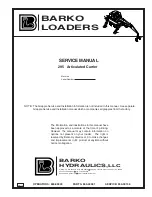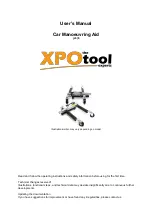
SC932A CS I/O to RS-232-DCE Interface
4
TABLE 4-1. Approximate Range, miles and km
Data Rate 19 Gauge (0.9 mm) 24 Gauge (0.5 mm) 26 Gauge (0.4 mm)
bps
miles
km
miles
km
miles
km
9,600
6.2
10.0
2.8
4.5
2.0
3.3
1,200
7.6
12.2
3.4
5.5
2.5
4.0
4.1 RAD Modem – Two-Way
4-WIRE UNCONDITIONED
TELEPHONE LINE
OR
TWO TWISTED PAIRS
SRM
9 TO 25 PIN
ADAPTOR
SC932A DATALOGGER
PC SRM
FIGURE 4-1. Two-Way Communication
When using Campbell Scientific’s data logger support software to
communicate through the SC932/RAD modem, set up the link as a direct
connect between the data logger and the desired COM port. Start two-way
communication using the
Connect
button on the toolbar or the
Connect
button
on the
Connect
window.
4.2 RAD Modem Wiring and Grounding
shows a typical setup of the RAD modems. Installation is as
follows:
1.
Set the DCE/DTE switch on the back of the RAD modem connected to
the SC932A to DCE. For a RAD modem connected to a PC, set the
DCE/
DTE switch to DCE. For a RAD modem connected to a serial
printer, set
the DCE/DTE switch to DTE.
2.
Select a cable with two or more twisted pairs. Direct burial rodent or
gopher resistant cable is recommended.
3.
Wiring connections are made as shown in FIGURE
. Note wires
label
l
ed A and B are one twisted pair of the cable. Wires labe
l
led C and D
are the other twisted pair.
4.
Transients induced on the communication line may damage any
electronics connected at either end of the line. To decrease the chances for
damage, spark gaps should be installed as shown in FIGURE
. The
transient protection shown may be purchased from Campbell Scientific
). Spark gap wiring is straight through such that pin to pin
continuity exists between the two modems. If the modems are installed
entirely within a building, the transient spark gap protection is probably
not needed.






























